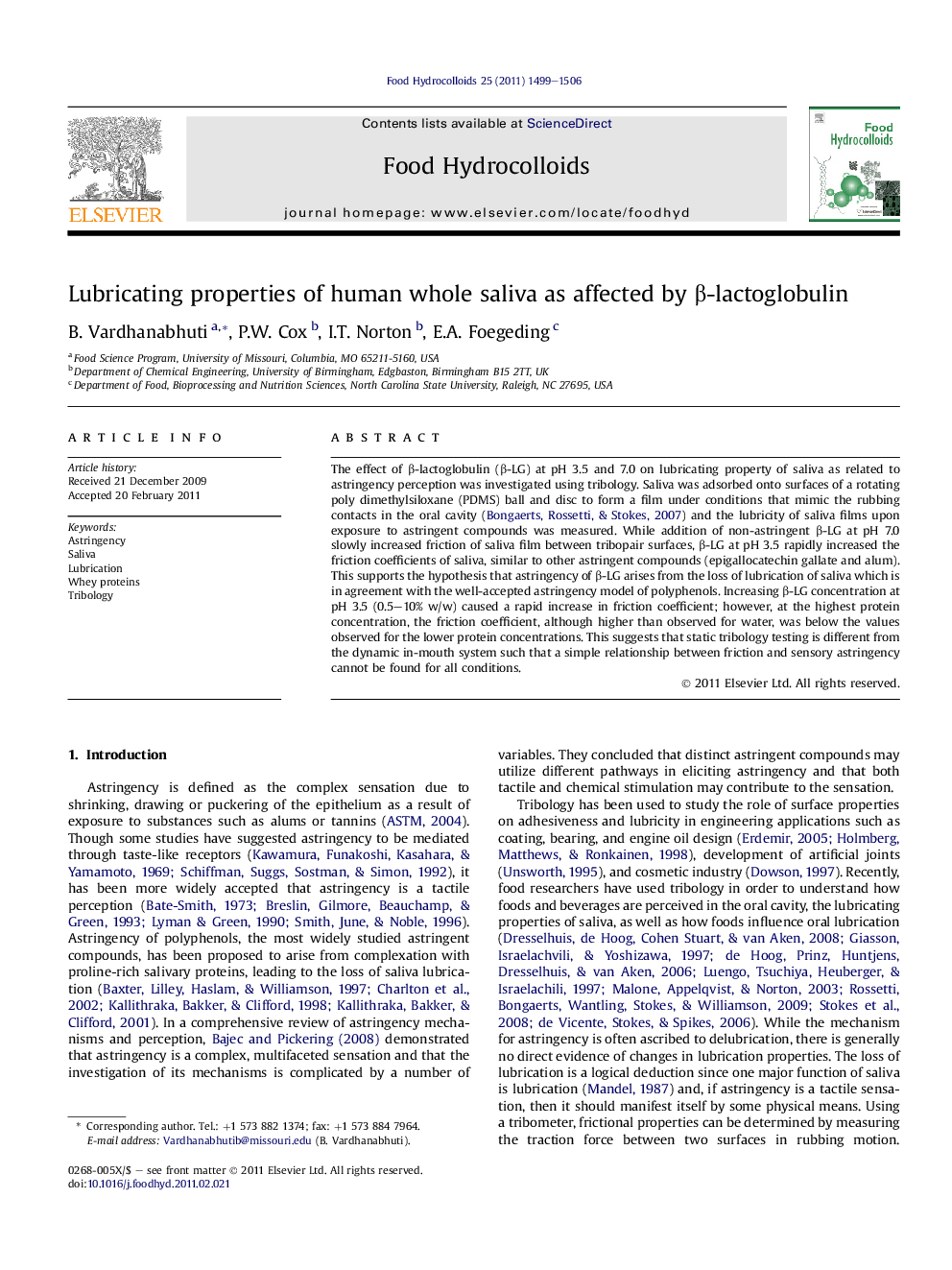| کد مقاله | کد نشریه | سال انتشار | مقاله انگلیسی | نسخه تمام متن |
|---|---|---|---|---|
| 604549 | 880315 | 2011 | 8 صفحه PDF | دانلود رایگان |

The effect of β-lactoglobulin (β-LG) at pH 3.5 and 7.0 on lubricating property of saliva as related to astringency perception was investigated using tribology. Saliva was adsorbed onto surfaces of a rotating poly dimethylsiloxane (PDMS) ball and disc to form a film under conditions that mimic the rubbing contacts in the oral cavity (Bongaerts, Rossetti, & Stokes, 2007) and the lubricity of saliva films upon exposure to astringent compounds was measured. While addition of non-astringent β-LG at pH 7.0 slowly increased friction of saliva film between tribopair surfaces, β-LG at pH 3.5 rapidly increased the friction coefficients of saliva, similar to other astringent compounds (epigallocatechin gallate and alum). This supports the hypothesis that astringency of β-LG arises from the loss of lubrication of saliva which is in agreement with the well-accepted astringency model of polyphenols. Increasing β-LG concentration at pH 3.5 (0.5–10% w/w) caused a rapid increase in friction coefficient; however, at the highest protein concentration, the friction coefficient, although higher than observed for water, was below the values observed for the lower protein concentrations. This suggests that static tribology testing is different from the dynamic in-mouth system such that a simple relationship between friction and sensory astringency cannot be found for all conditions.
Figure optionsDownload as PowerPoint slide
Journal: Food Hydrocolloids - Volume 25, Issue 6, August 2011, Pages 1499–1506